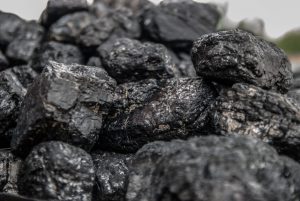I just read a teeth whitening article about charcoal, which has me intrigued. I’m all about holistic, all-natural products.
I have had Zoom teeth bleaching done in the past. The results with Zoom whitening were awesome. However, it left me in so much pain after the procedure. I refuse to put myself through all that again. My teeth are picking up stains again, so I want to get them whitened.
Do you think teeth whitening with charcoal is safe and effective?
-Jim in Nevada
Jim,
 Charcoal teeth whitening is very popular right now, compliments of social media. The videos you may have seen on popular media channels like YouTube, refer to activated charcoal. This is different than the bricks of charcoal you’re used to seeing on the grill.
Charcoal teeth whitening is very popular right now, compliments of social media. The videos you may have seen on popular media channels like YouTube, refer to activated charcoal. This is different than the bricks of charcoal you’re used to seeing on the grill.
Myth-busters about Charcoal Teeth Whitening
It’s All-Natural and Non-Toxic – True. Charcoal is utilized in medical arenas and available in the retail market as supplements. Although, it is generally not safe for consumption.
Absorbent – True. Charcoal is absorbent so theoretically it should pick up stains off your teeth.
Safe for Teeth – False. When it comes to dentistry, abrasive materials are important to understand. The natural tooth enamel is highly resistant from scratches. But, it cannot resist every substance or material. For example, many whitening products and toothpastes are highly abrasive. This characteristic is helpful in stain removal. However, it can be damaging to the teeth and it may also irritate the gums. Charcoal is more abrasive than most whitening toothpastes. Therefore, it may cause irreversible damage.
It Works – Half true. It is true that charcoal may whiten your teeth. Although, this technique and products containing charcoal have not been clinically tested or approved. So, it cannot be proven that is works. Also, once your enamel has been damaged, it won’t grow back. So, you need to proceed with caution before moving forward with this whitening technique or any kind of teeth whitening treatment.
Professional Teeth Whitening Options
It really is best to see an experienced cosmetic dentist if you truly want a beautiful, dazzling white smile. This will help avoid potential damage and also ensure any urgent needs are addressed prior to beginning whitening treatment.
You referenced some sensitivity after your previous professional teeth whitening appointment. This is actually quite common. It is largely due to the fact that your teeth are filled with tiny holes called tubules. In-office whitening is highly effective, yet very powerful. When the teeth are whitened the tubules open up and the whitening agents can irritate them. They will close up again after a few days, which often means you will be sensitive to temperature changes and air.
Many cosmetic dentists recommend a fluoride treatment prior to whitening. This will help reduce the sensitivity that is common after teeth bleaching treatments.
Or, you could ask your dentist about an at-home teeth whitening system. You may not see the results immediately with at-home whitening. Although, you be able to get the results you are seeking after a week or two. With this option, you can take a break from using the treatment if you experience severe sensitivity.
Hopefully, this information is helpful as you explore your options.
This post is sponsored by Lexington cosmetic dentist Hamburg Expressions.
Previous Post Next Post